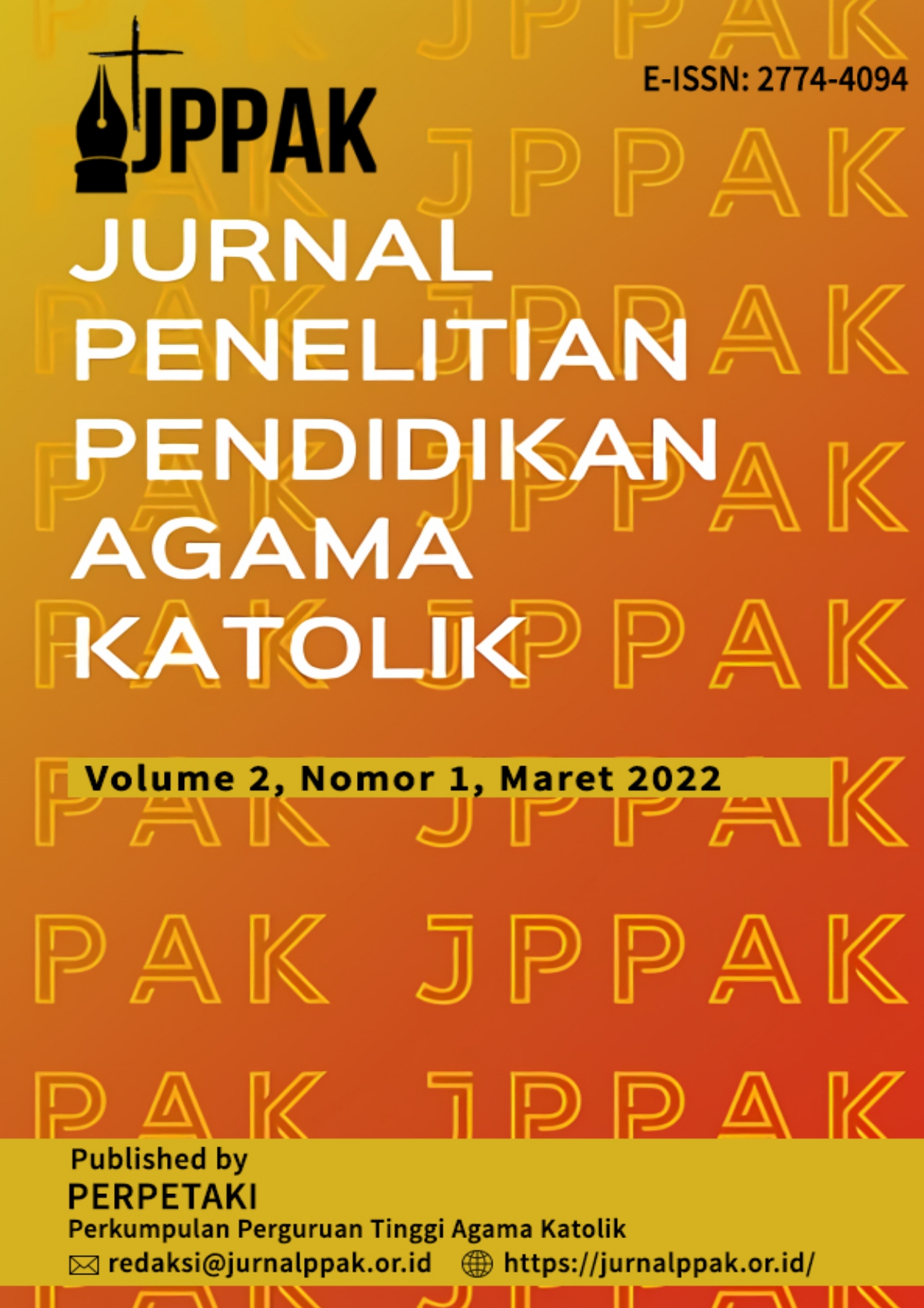Catholic Religious Education Teachers Role in Improving Social Skills of Santa Maria Kabanjahe Private High School Students
DOI:
https://doi.org/10.52110/jppak.v2i1.30Keywords:
Teacher's Role, Social Skills, LearnersAbstract
Social skills are skills that need to be possessed by every student because these social skills are part of life skills. Social skills can also require students to achieve success in their social life at school and in society. Good student life and association can foster students' social skills. Through these social skills, students will be able to relate and respond to other people well. This research was conducted to examine the role of Catholic Religious Education teachers in improving the social skills of Santa Maria Kabanjahe Private High School students with 12 informants consisting of: Catholic Religious Education Teachers, Principals and students. This research uses qualitative research. Research data obtained by means of observation, interviews and documentation. This research took place from March to May 2021. The results showed that the role of Catholic Religious Education teachers had been carried out as well as possible in improving students' social skills, students at Santa Maria Kabanjahe Private High School had good social skills through the role of Catholic Religious Education teachers who include: the role of Catholic Religious Education teachers as role models, as learning managers, as motivators, and as curriculum implementers
Downloads
##submission.downloads##
Submitted
Accepted
Published
How to Cite
Issue
Section
License
Copyright (c) 2022 Mimpin Sembiring, Abdi Guna Sitepu, Aser Wiro Ginting, Paulinus Tibo

This work is licensed under a Creative Commons Attribution-ShareAlike 4.0 International License.
Copyright Notice and Permissions
Jurnal Penelitian Pendidikan Agama Katolik offers immediate open access to all its content on the principle to make researches freely available to the public, especially to the scholars, to support greater global exchanges of knowledge. This journal encourages all scholarly authors to allow their research openly available, free access and without time restrictions.
All articles published Open Access will be immediately and permanently free for everyone to read and download. Under the CC BY-SA 4.0 license, authors retain ownership of the copyright for their article, however authors grant others permission to use the content of publications in Jurnal Penelitian Pendidikan Agama Katolik (JPPAK) in whole or in part provided that the original work is properly cited. Users (redistributors) of Jurnal Penelitian Pendidikan Agama Katolik (JPPAK) are required to cite the original source by including at least: the full title of the article, the author's or authors' full name(s), JPPAK as the initial source of publication, year of publication and volume number using a propriate citing method.
Copyright encompasses exclusive rights to reproduce and deliver the article in all form and media, including reprints, photographs, microfilms and any other similar reproductions, as well as translations. The reproduction of any part of this journal, its storage in databases and its transmission by any form or media, such as electronic, electrostatic and mechanical copies, photocopies, recordings, magnetic media is prohibited without consent of Jurnal Penelitian Pendidikan Agama Katolik (JPPAK).
Jurnal Penelitian Pendidikan Agama Katolik (JPPAK) is licensed under a Creative Commons Attribution Share-Alike 4.0 International. (CC BY-SA 4.0)
Authors who publish with Jurnal Penelitian Pendidikan Agama Katolik (JPPAK) agree to the following terms:
- Authors retain copyright and grant the journal right of first publication with the work simultaneously licensed under a Creative Commons Attribution Share-Alike 4.0 International (CC BY-SA 4.0) license that allows others to share the work with an acknowledgement of the work's authorship and initial publication in this journal.
- Authors are able to enter into separate, additional contractual arrangements for the non-exclusive distribution of the journal's published version of the work (e.g., post it to an institutional repository or publish it in a book), with an acknowledgement of its initial publication in this journal.
- Authors are permitted and encouraged to post their work online (e.g., in institutional repositories or on their website) after the publication on JPPAK, as long as it not published on other OJS for it will be treated as plagiarism by plagiarism checker apps. It can lead to productive exchanges, as well as earlier and greater citation of published work (See The Effect of Open Access).












